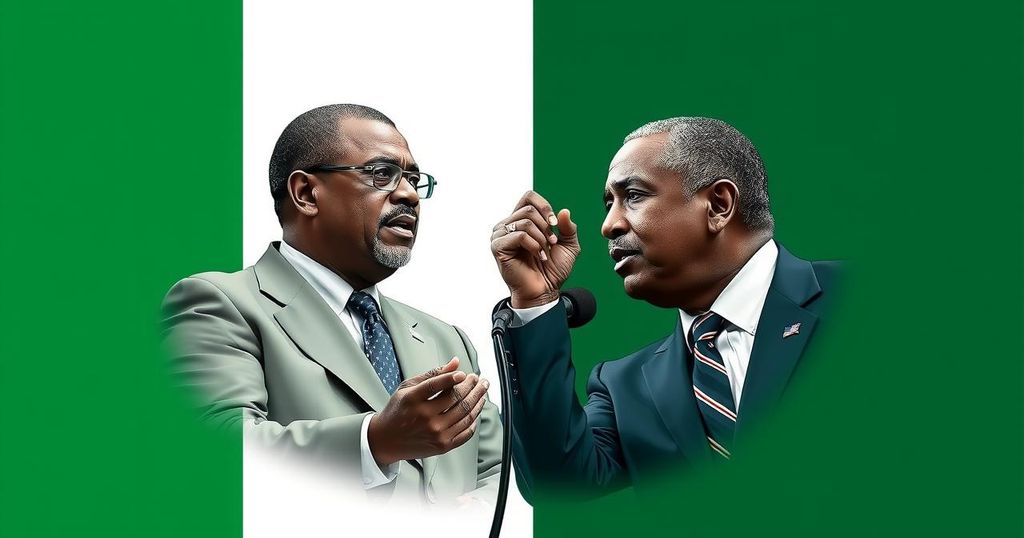Reflections on Election Outcomes: A Nigerian Perspective on U.S. Politics

The article examines the aftermath of the recent U.S. presidential election from a Nigerian perspective, drawing comparisons with Nigerian electoral experiences. The author discusses disappointment following the loss of the candidate he supported, Peter Obi, and highlights the broader implications of political disillusionment in both countries. Ultimately, it calls for humility and unity among citizens to heal divisions and foster a more cohesive society.
The recent U.S. presidential election outcome has prompted significant reflection, especially among those whose preferred candidates lost. This sentiment resonates deeply with Nigerians, as several have likened their own electoral experiences to those observed in the U.S. The author recalls the 2015 Nigerian election, where he supported Goodluck Jonathan over Muhammadu Buhari, only to face the reality of Buhari’s election victory. In the 2023 elections, the author backed Peter Obi against Bola Tinubu, seeking what many hoped would be a transformative leadership.
Obi was seen as a candidate bringing hope for change, contrasting sharply with both Buhari’s administration and the corruption pervading Nigerian politics. However, despite significant public support, Obi faced defeat, prompting disappointment and legal challenges similar to those witnessed in U.S. politics, particularly concerning Donald Trump. The parallels drawn between the legal controversies surrounding both Tinubu and Trump highlight a concerning trend where those with dubious backgrounds successfully attain power, leaving citizens disillusioned.
The author discusses how political polarization in both Nigeria and the U.S. has led to increased acrimony among individuals, further emphasizing the necessity for humility and understanding to foster unity post-election. He points to the need for a change in attitude among victorious factions to heal divides within society. The article reflects on prominent calls for unity from both Trump and Vice President Kamala Harris, questioning whether these promises can translate into genuine reconciliation between divided constituents. The fundamental message remains: understanding and respect are vital for progressing toward a more harmonious society, despite differing views in ideological realms.
This article draws on experiences from both the Nigerian and U.S. political landscapes, exploring themes of election outcomes, political disillusionment, and societal healing. The author’s reflections on past elections in Nigeria illuminate the struggles faced by citizens to accept electoral results, whether in their homeland or abroad. By contrasting the Nigerian elections with the recent U.S. presidential election, the piece underscores the disturbing normalization of corruption and legal controversies among high-ranking politicians, challenging the public’s faith in democratic processes. Furthermore, it emphasizes the importance of addressing the resulting societal divisions that arise from such politically charged environments.
In conclusion, the author advocates for a necessary shift in discourse and a collective effort to embrace reconciliation in the aftermath of contentious elections. By reflecting on the parallels between Nigeria and the U.S., the commentary serves as a reminder of the larger implications of political leadership and the critical need for societal healing. As the world grows increasingly intertwined, the lessons learned from these elections become ever more relevant, underscoring the fundamental human aspirations for justice, equity, and unity across borders.
Original Source: baptistnews.com







